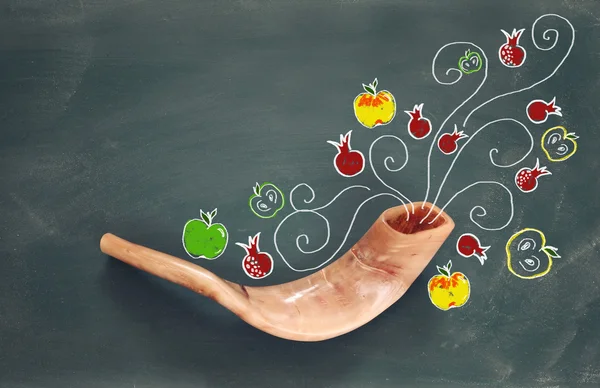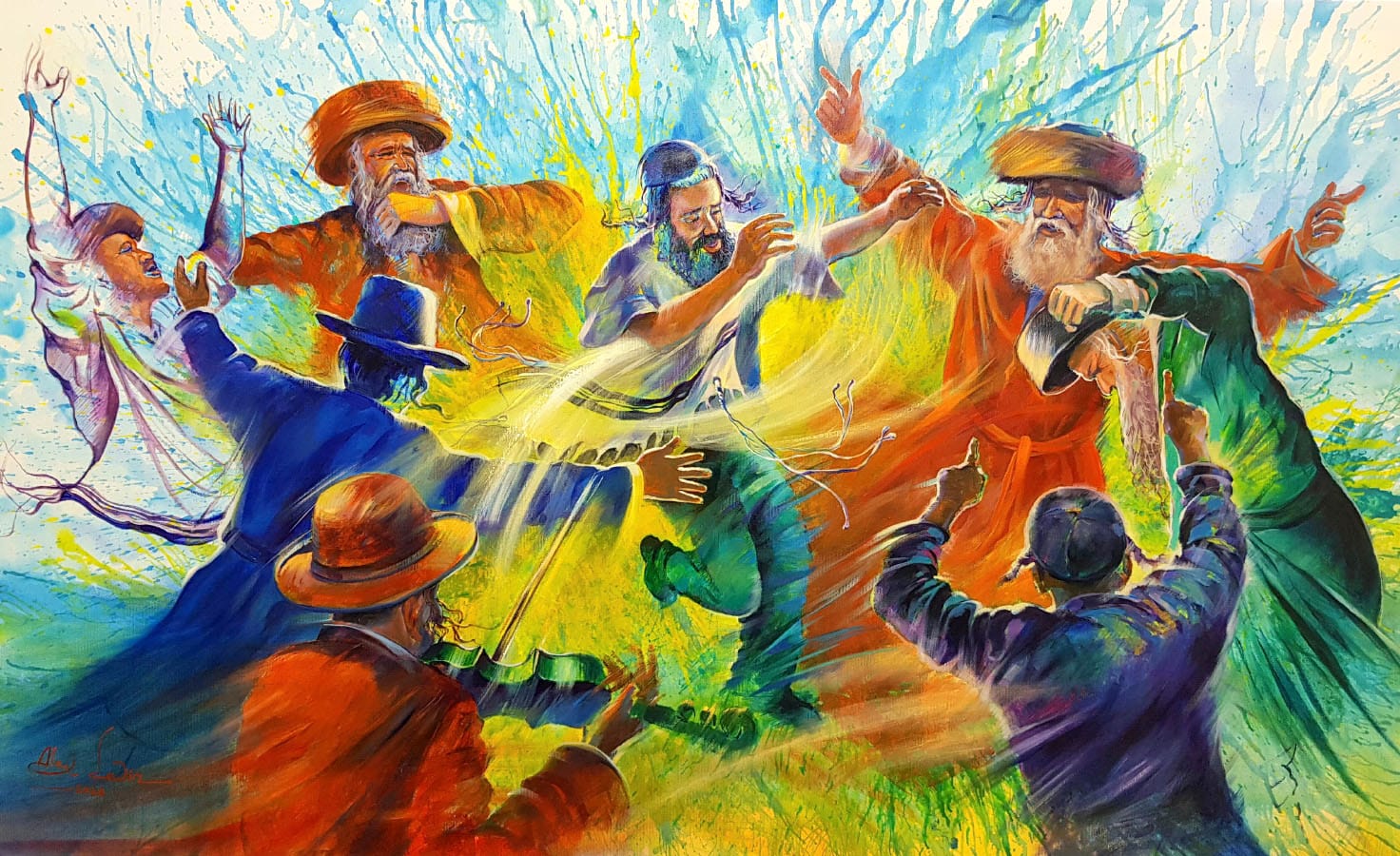Are You Floating in the Ha’azinu Valley?

The Seder HaDoros tells an incredible story from the life of the Ramban:
The Ramban once had a student, Rav Avner, who converted to Catholicism and assimilated into Spanish society. Soon he rose to the highest ranks of the nobility. Once he summoned his former teacher to appear before him on Yom Kippur.
Fearful of the possible negative consequences that could arise from not heeding the order and hopeful that the influence of the holy day would enable him to spur his former student to repentance, the Ramban made his way to Avner’s palace.
When he entered, he was ushered into his student’s chamber. Avner had been waiting for him. He took a knife, approached a pig that he had prepared, slaughtered it, cut it up, roasted its meat on a fire, and ate it with relish.
“How many transgressions involving the serious punishment of Kerais did I just commit?” he asked the Ramban.
“Four,” the sage answered.
“No, five,” Avner replied, and with erudition, he proceeded to prove the correctness of his assertion.
“If your knowledge is so great,” the Ramban asked, “why did you abandon the Torah?”
“It's your fault!,” Avner replied.
“What did I do?”
“Once at a public shiur, you stated that everything that will ever transpire in all of History is alluded in the Song Haazinu. I considered that a most preposterous statement and decided that I want no part of a religion whose teachers would utter such absurdities.”
“What I said is absolutely true,” replied the Ramban.
“Prove it to me,” responded Avner. “Show me where my name is alluded to in Haazinu. ”
The Ramban retreated to a corner to daven, and after a moment he answered: “It is written: אמרתי אפאיהם אשביתה מאנוש זכרם (Haazinu 32:26), “I said: ‘I will scatter them; I will obliterate their memory from among mankind.’’ The third letters of each of the words of the verse spells out , Rav Avner.”
“What can I do to correct my error?” Avner asked in awe.
“Follow the directive of the verse,” the Ramban replied.
Indeed, the Ramban on his commentary to this Pasuk explains:
אשביתה מאנוש זכרם – גלותנו בין העמים – To be exiled amongst the nations of the world.
Shortly afterwards, a black-masted ship set off from a Spanish harbor to a destination unknown.
The Gemara in Rosh Hashana (30b) tells us that the aliyos of Parshas Ha'azinu are quite specific. In fact, Ha'azinu is the only Parsha in Chumash whose Aliyos are listed in the Talmud.
במוספי דשבתא מה היו אומרים אמר רב ענן בר רבא אמר רב הזי”ו ל”ך
Rav Anan bar Rava said that Rav said: They would recite in accordance with the mnemonic hei, zayin, yod, vav, lamed, kaf. They would divide the song of Ha’azinu into six sections, each of which began with a letter of the mnemonic: “Give ear [ha’azinu], you heavens” (Deuteronomy 32:1); “Remember [zekhor] the days of old” (Deuteronomy 32:7); “He made him ride [yarkivehu] on the high places of the earth” (Deuteronomy 32:13); “The Lord saw it [vayar] and spurned” (Deuteronomy 32:19); “Were it not [lulei] that I dread the enemy’s provocation” (Deuteronomy 32:27); “For [ki] the Lord will judge His people” (Deuteronomy 32:36).
But what is the story of Ha'azinu? What is this prophetic poem of Moshe Rabbeinu about?
Rav Saadya Gaon (אמונות ודעות מאמר ז א) explains:
The song of Ha'azinu is the story of the Jewish people. In the beginning, Hashem chose us (זכור ימות עולם – Remember the days of old...). Second, He looked after us in the desert (ימצאהו בארץ מדבר – He found him in a desert...) Third, we rebelled (וישמן ישרון ויבעט – Yeshrun grew fat and kicked). Fourth, Hashem punished us (וירא ה' וינאץ – Hashem saw and was angry). Fifth, Hashem punished our enemies (כי מגפן סדום גפנם – The vine for them is from Sodom). Sixth, we will be redeemed (ראו עתה כי אני אני הוא – See that I am Hashem...). And just like a body that is healed from sickness is still the same body, so too, the body that dies will be the body that arrises at the time of resurrection.
The Ramban writes (לב:מ):
והנה אין בשירה הזאת תנאי בתשובה ועבודה, רק היא שטר עדות שנעשה הרעות ונוכל, ושהוא יתברך יעשה בנו בתוכחות חימה אבל לא ישבית זכרנו, וישוב ויתנחם ויפרע מן האויבים בחרבו הקשה והגדולה והחזקה, ויכפר על חטאתינו למען שמו. אם כן השירה הזאת הבטחה מבוארת בגאולה העתידה על כרחן של מינין.
There are no conditions in this song. It is a promissory note that we will do evil and be consumed. And that He will punish us, but never destroy us. And He will exact justice on our enemies... and forgive our sins. And thus this song is a promise that redemption will come, despite the protests of the heretics. (Referencing his debates with the Christians who claimed that we would never again be redeemed.)
The first six Aliyos of Ha'azinu are the story the 6000 years of our era. But there is something strange about this song, in that it is written with an empty space in between. Like two towers of pesukim, leaving a vast gap in the middle. That gap is our capacity to live in the middle of the song of Jewish History and feel nothing, see nothing, live as if nothing is happening around us. It's the world of “I guess so... I suppose I could...” It's the world of cold, uncommitted Jewish life. It's the life a bystanders to the awesome saga of Jewish history.
The Avoda of this Shabbos is to find ourselves in the text as well, as the Divrei Yechezkel of Shinnov quotes from Reb Mendel of Rimanov:
כשהייתי אברך ורציתי לידע האיך אני עומד בדרך העבודה חפשתי בשירת האזינו בשורה הימנית מצות עשה ובשורה השמאלית מצוות ל”ת
When I was young, I wanted to know where I stand regarding my service of Hashem. So I searched in Haazinu on the right hand side to find the positive mitzvos I should work on, and on the left hand side to know the negative mitzvos I should work on.
The Sefer Pi Tzadik (עמ׳ קנ”ה) quotes from the Shinnover himself:
יודע אני באיזה מקום אנוכי מרומז בשירת האזינו – I know where I am in the song of Haazinu
Personally, I am not zocheh to know where I am mentioned in this great song of Moshe. But I think we know we are... I think it's clear that we’re somewhere near the very end.
But that's where Jewish history as a whole is holding. The credits will soon be rolling up on the screen.
But on Shabbos Shuva, the question that Ha'azinu asks is far more personal. This Shabbos, the Torah is asking each of us if we tethered to the text and the story, or just floating idly and inconsequentially in the middle?
Hashem should help each of us, our families and communities to Exit Ha'azinu Valley. The Teshuva of this Shabbos is to reengage in our place in Jewish history and anchor ourselves to the future of our people.








